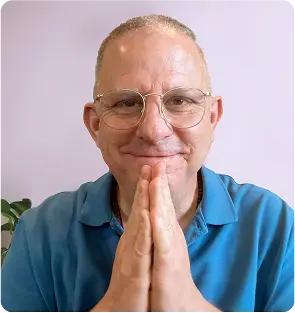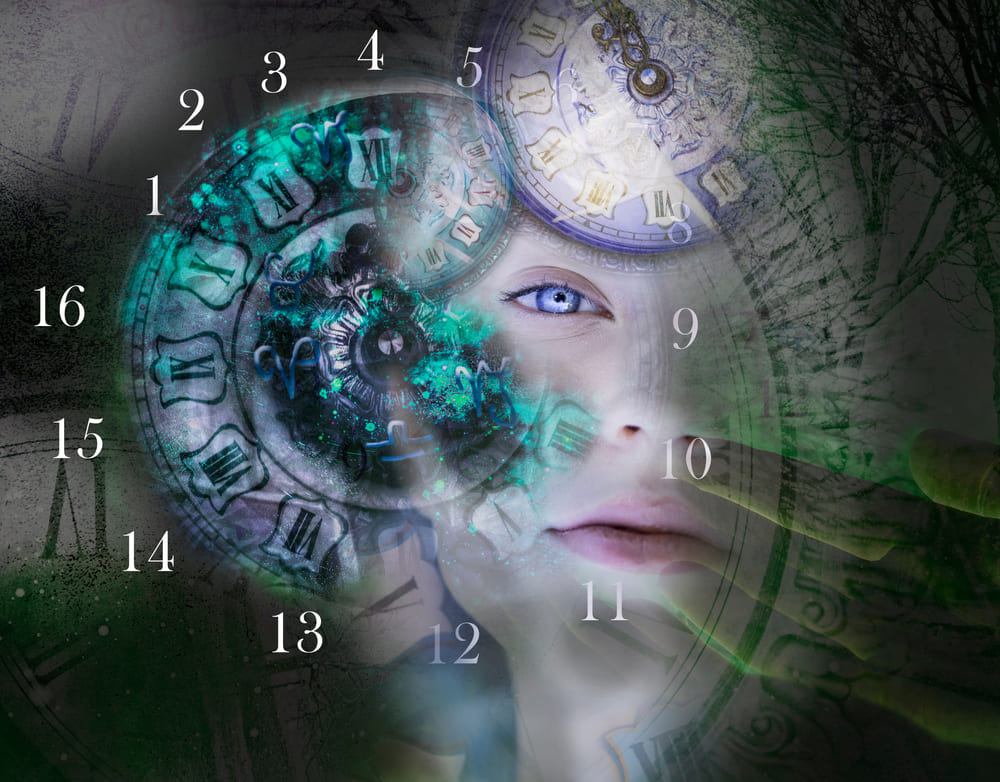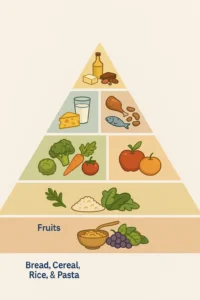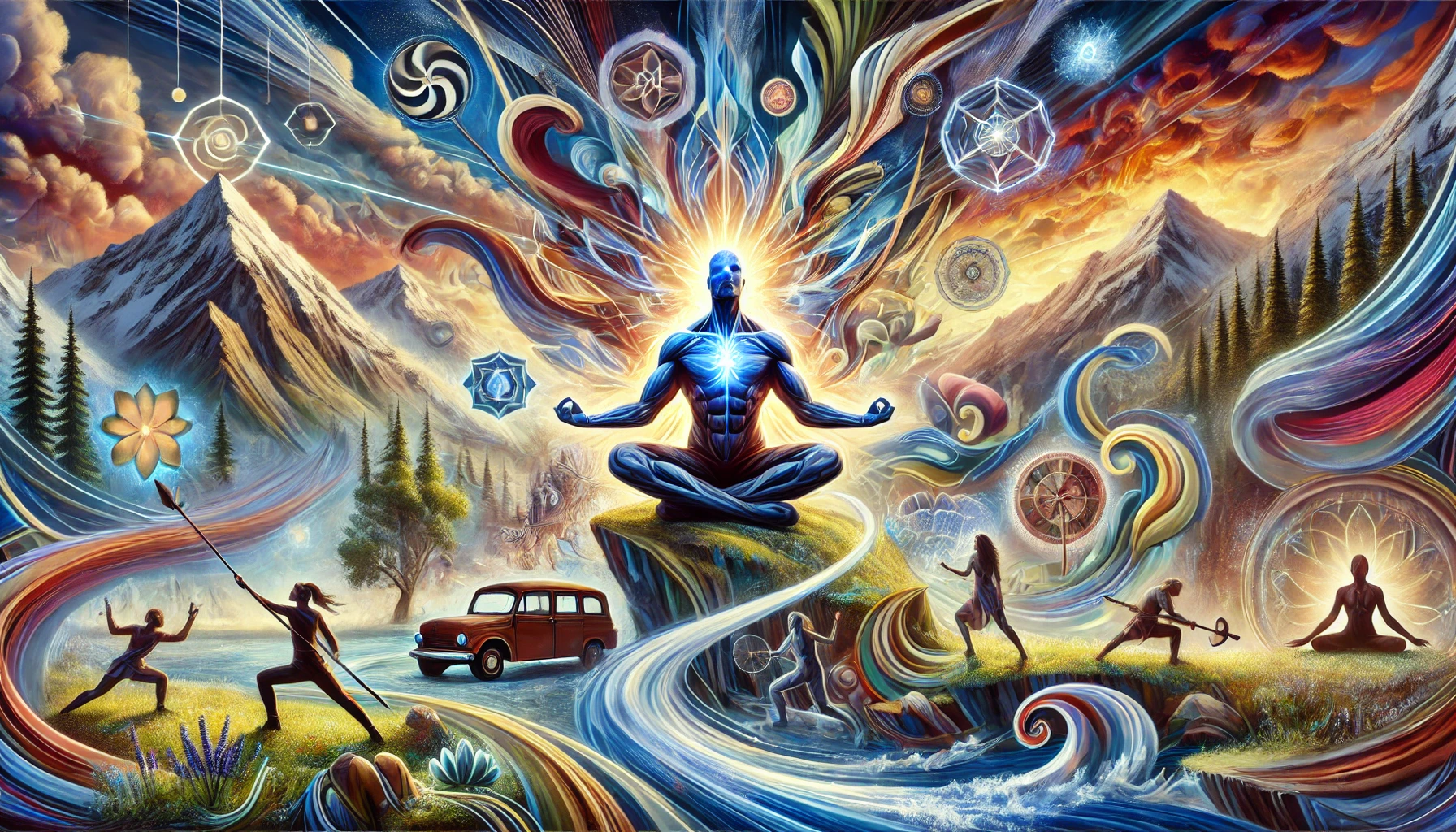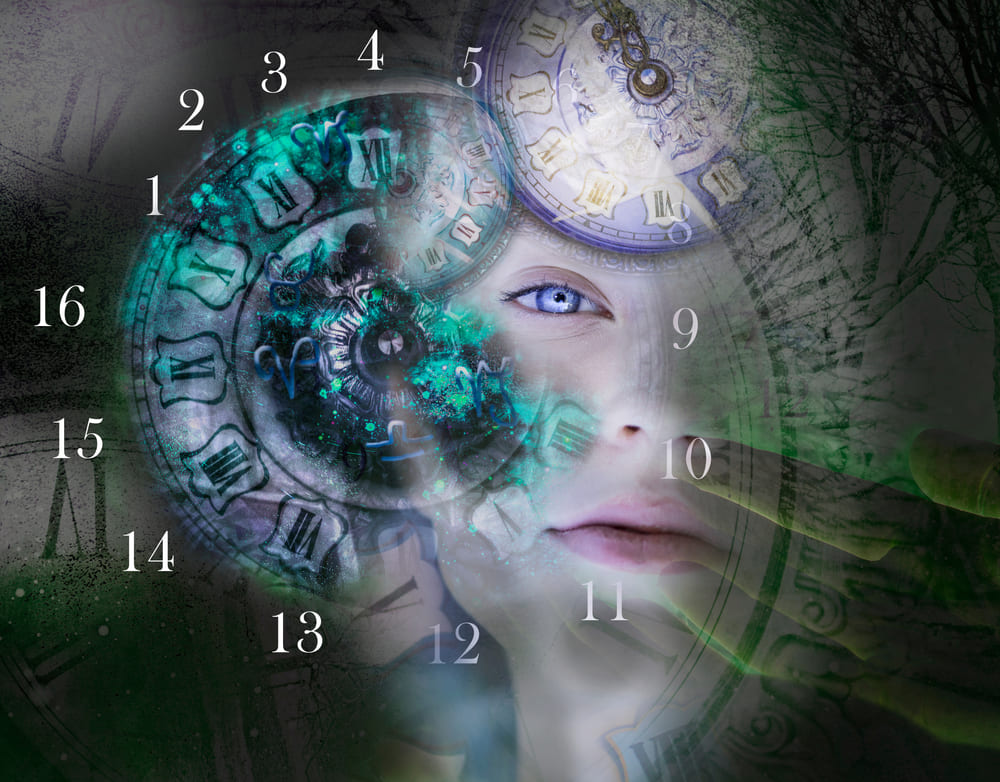
When Your Healing Stack Doesn’t Work, Something Deeper May Be Happening – Understanding The Impact Of Ancestral Memories On Present Behavior
There comes a point on the healing path when your carefully built stack of tools and techniques falls silent. The supplements, the rituals, the morning breathwork – all of it suddenly feels like it’s brushing up against something it can’t quite touch.
It’s not because the system failed. It’s because something older – something deeper and heavier – just stepped forward.
This is what happens when you enter a clearing phase that isn’t just yours. It’s something that belongs to the people who came before you. The family system. The ancestral field. The emotional weight that didn’t start with you, but is somehow trying to end through you.
This isn’t a relapse – it’s a spiritual initiation. This is what happens when you are about to step into spiritual sovereignty.
What Is Ancestral Compression In Spiritual Healing?
Ancestral Compression is what occurs when your body and spirit begin to carry the unprocessed emotional and energetic weight of your lineage. This isn’t just about epigenetics or trauma you remember. It’s the invisible web of loyalties, judgments, silences, and betrayals running through the generations.
It isn’t just trauma in the traditional sense – it’s the emotional gravity of lives unlived:
-
- The shame a grandmother never spoke
- The rage a father swallowed every day
- The disappointment a sister refused to process
- The burden of pretending, enduring, fitting in
This kind of compression doesn’t always look like grief. Sometimes it manifests like fog behind the eyes, pressure behind the forehead, or a weight in the chest you can’t explain.
It doesn’t belong to your conscious mind – but it lives in your field.
How To Identify Ancestral Trauma Patterns And Where These Show Up In the Body

Ancestral density moves differently than normal stress or emotional tension. It has specific entry points – and when you’re sensitive, it tends to lodge itself in very particular places:
- The back of the head – often where ancestral vision gets blocked or misdirected. This connects to the Gallbladder and Du channels in Chinese medicine, which govern decisiveness and direction.
- The forehead and eyes – a sign that something is pressing against your ability to truly see. Not just physical vision, but third-eye clarity – intuitive perception.
- The Heart–Liver axis – this is the seat of loyalty, judgment, identity conflict, and emotional stagnation. When these organs are holding unprocessed ancestral charge, you’ll feel a mix of resentment, confusion, fatigue, and fire.
You’re not just “off” on these days. You’re moving energy that never had a place to go – until now.
Why The Stack Of Healing Modalities Didn’t “Work” and How Do I Step Into Sovereignty?
When ancestral compression is active, the body doesn’t respond in the usual ways. Your trusted methods might suddenly feel muted or ineffective. You might meditate a dozen times a day. You might take your adaptogens, glycine-niacin stack, nervines, mitochondrial support, Ayurvedic rasayanas, or traditional Chinese formulas. You might dial in your diet, run detox cycles, microdose, or lean into nootropics to find clarity or calm.
And still – nothing moves. This is not failure. This is a signal. Your tools haven’t failed. They’ve simply reached the edge of what they were designed to do.
Protocols and plant allies are powerful when they’re helping you clear what’s yours. But ancestral compression is different. It isn’t rooted in your individual chemistry. It doesn’t follow your patterns of trauma or healing. It doesn’t begin in your timeline.
Ancestral compression is collective density. It is the accumulation of silence, judgment, betrayal, and grief passed from soul to soul through family fields. It is systemic – not personal.
And when your body becomes stable enough, present enough, and spiritually clear enough, the ancestral field recognizes an opening. The system itself begins to move, sensing that it now has a vessel that can hold and transmute what others could not.
At that point, the process no longer looks like symptom management. It no longer follows the rules of regulation or balance. It begins to feel like pressure with no source – grief without story – energetic weight that doesn’t respond to your usual forms of care.
That’s when you know – your body has stopped being the battleground. It has become the altar.
Your tools didn’t fail. They stepped aside. Something older stepped in. And your system allowed it, because it finally could.
The Emotional Container Becomes A Ceremonial Vessel and How To Identify Ancestral Trauma Patterns
There comes a point in deep healing when your emotional body stops reacting to every discomfort and begins doing something far more sacred. It becomes a ceremonial vessel. Not a battlefield. Not a crisis. A space where something old and unresolved can finally be seen, held, and released.
This shift is subtle, but powerful. You might not feel stronger in the moment. In fact, you may feel more raw, more sensitive, or more exposed. But what’s really happening is this: your nervous system is no longer just trying to protect you from pain. It has matured enough to participate in the clearing of what didn’t begin with you.
This isn’t punishment. This is initiation. Your discomfort is not a sign of failure – it’s a sign that your body is doing something only a few ever get to do. You are becoming a living altar for transformation.
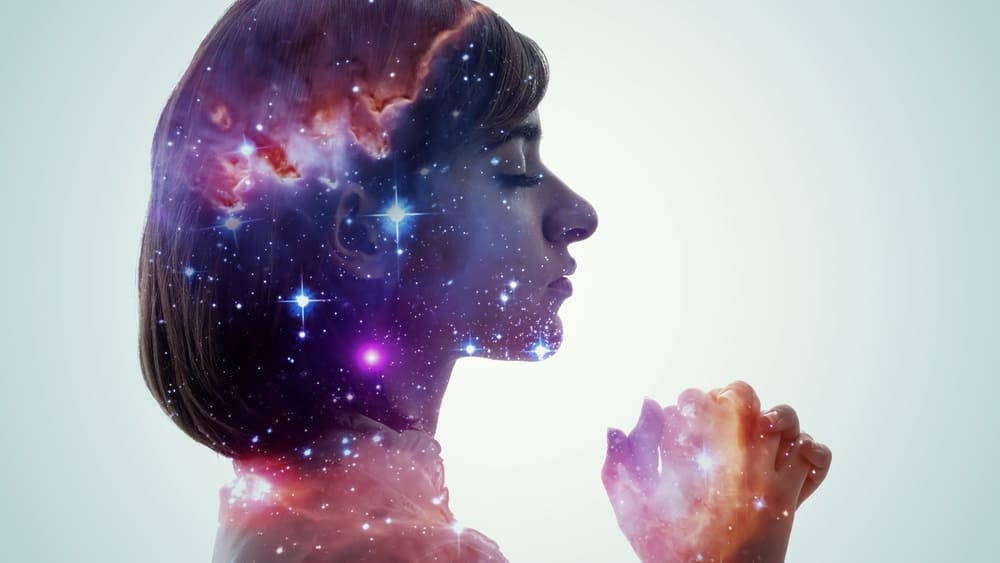
Ancestral energy doesn’t require intellectual understanding. It doesn’t need to be named, explained, or analyzed. What it needs is presence. What it asks for is your willingness to stay with it, to breathe through it, and to not collapse into fear or resistance.
You may feel like you’re carrying something unfamiliar. A weight that doesn’t belong to you. An emotion that shows up suddenly with no clear trigger. A pressure that lingers in your chest, your head, or behind your eyes. This is not random. It’s a handoff. The system is trusting you to help complete something that couldn’t be resolved before.
And that trust means you’ve already come further than you realize.
So if you find yourself sitting with something that feels too big, too old, or too strange to name – know this: you are not being overwhelmed. You are being honored. You’re not just healing. You’re helping your lineage put something down.
Your body knows how to do this. Let it. Open up and embrace this as a new, subtle form of healing and expansion.
The Dreams Aren’t Just Dreams – Understanding The Impact Of Ancestral Memories On Present Behavior
When ancestral clearing is underway, the dream space becomes something else entirely. It stops being a random projection of the subconscious and turns into a living field of movement, communication, and release. It becomes a bridge between timelines, where old patterns attempt to dissolve, and where the unseen reaches into your awareness for completion.

These dreams are not just symbolic or strange. They are intentional. They are part of a deeper intelligence moving through your body and lineage. Conversations unfold that carry more truth than anything ever spoken while awake. People from your past show up with words that land in your bones. A parent. A sister. A relative you haven’t spoken to in years. Sometimes they speak directly. Sometimes they just look at you in a way they never could before.
These moments are not imaginary. They are energetic exchanges. You’re not making things up – you’re hosting something sacred.
You might hear a phrase that cuts through years of confusion. Something as quiet as “You were right to go” or “I see it now.” Even people who were never central to your pain may appear. A neighbor. An old friend. A cousin who never said much. They show up to say something clean, something final, or just to bear witness to the clearing.
Sometimes they offer apologies. Other times, it’s not about words. It’s a glance. A moment of being seen without tension. Or a symbolic act – handing you a letter, standing in the background with a softened face, walking away down a hallway that never ends.
These dreams don’t follow logic. They follow soul design.
And when you wake, something feels different. Not better in the conventional sense, but clearer. As if something heavy has been lifted, even if the content of the dream was strange or subtle. Your chest feels lighter. Your eyes stop straining. You might cry without knowing why. You might feel nothing at all – except the quiet.
That’s how you know something moved.
Dreams like these are part of the release. They are not just helping you – they are allowing the lineage itself to reorganize. When you reach a certain level of emotional and spiritual stability, your nervous system becomes a trusted site for ancestral resolution. Your dream body becomes the safe place where timelines can unravel and dissolve. Where agreements can be rewritten. Where things that were never said aloud can finally be said, even if only once, and even if only in the dream.
This is how ancestral repair begins – through silence that becomes presence, through images that don’t need interpretation, through dialogue that bypasses the mind and settles directly into the body.
The work you do in these dreams sends ripples in every direction. It clears space forward and backward. It allows something old to be put down, so something new can finally begin.
You may never know the full reach of what changed – but you’ll feel it. In the way your body breathes. In the way you walk away from things that used to hook you. In the way you no longer need to explain your freedom to anyone.
This isn’t imagination. It’s transformation. It’s the field trusting you enough to bring the weight to your altar – and watching you hold it with both grace and fire.
When that happens, it’s not just healing. It’s soul-legacy work.
The Family System Will Try to Pull You Back. Learn To Release Inherited Ancestral Burdens
Once ancestral compression begins to lift, the system you came from often doesn’t celebrate your freedom. It resists it. The family field – whether biological or chosen – tends to push back when someone breaks from the unspoken rules.
And it rarely does so directly.
It happens through psychic loops and quiet manipulations. You may hear someone close to you say something that sounds simple, even casual – but it cuts straight to your core.
“You’re starting to sound like your father.”
“Your leaving hurt more people than you realize.”
“You’ve changed too much.”
“You’re just being difficult to understand.”
These aren’t just random comments. They are energetic retrieval attempts. They’re the field trying to pull you back into agreement with the old identity – the one that made other people feel safe.

It’s important to know – this isn’t always conscious. The person speaking may not realize the weight of what they’ve said. But the system behind it knows exactly what it’s doing. It uses guilt. It uses insinuation. It uses emotional fog and spiritual camouflage.
This dynamic isn’t limited to your birth family. It often reappears through partners, spouses, and chosen family. The people you’ve loved most may have been drawn to your field precisely because they resonated with the unfinished business of your lineage. And for a time, you might have needed them. They helped mirror what you hadn’t yet seen. But eventually, the relationship may become the next tether – a more intimate version of the ancestral loop, wearing the mask of love, commitment, or sacred connection.
When you begin to move beyond those patterns, that’s when the pull intensifies. Sometimes it comes as grief. Sometimes it looks like conflict, misunderstanding, or a deep internal shame you can’t name. You may start questioning your path. Wondering if you’re being selfish. Feeling the urge to fix, to explain, to re-enter the dynamic just enough to smooth it over.
This is the test.
It’s the moment where the system checks to see if you’re willing to trade your freedom for a temporary sense of belonging.
This can feel unbearable. The pull is real. It lives in the nervous system, in the fascia, in the deepest grooves of your emotional memory. It’s not weak to feel it. It’s natural.
But you don’t have to go back.
These patterns were never meant to be permanent. They were meant to teach, to reflect, and eventually, to be cleared. And clearing them doesn’t mean cutting people out with cruelty or detachment. It means no longer making your truth negotiable for the sake of harmony.
The soul agreements we carry with partners and family members often end when the lesson completes. That doesn’t mean the love was false. It means the contract has served its purpose. And if you try to stay beyond that point, the pressure will only increase.
To stand firm in your evolution requires courage. The courage to face discomfort without merging. The courage to hear the projections and still walk your path. The courage to know that real love – the kind that honors sovereignty – will never require you to shrink.
You may feel alone at times. You may feel misunderstood or mischaracterized. But that doesn’t mean you’re off track. It means you’re becoming distinct from the patterns you were born into. You’re stepping out of ancestral fusion and into spiritual individuation.
And when you hold that line – when you refuse to collapse back into old agreements – the system begins to recalibrate around your clarity. Not immediately. Not always visibly. But energetically, something shifts.
Because you’re no longer playing the role. You’re becoming the author. And the field – eventually – respects that.
Become The Field You Choose To Live In
What you decide to become, as clear as you can become, becomes YOU. The forward movement from this recreates your reality.
[Read that again!]
This is not an abstract concept. This is how energy works. The more coherent your field becomes, the more your external life mirrors that coherence. The more you choose clarity over chaos, alignment over approval, presence over performance, the more you stop reacting to the ancestral field and start generating your own.
Your choices aren’t just about behavior. They are creative instructions sent into the subtle layers of the world around you. They reorganize how people respond to you. They re-pattern the types of partners and clients you attract. They determine which conversations you no longer have to repeat. They shift which versions of the past continue to echo – and which ones dissolve.

The system you came from will always try to play its part. The patterns will test your nervous system. The loops will try to pull you back with the same tones, faces, and frequencies. But when you become clear enough, something extraordinary happens.
They stop landing.
Not because you’ve built a wall, but because your signal has changed. You’re no longer tuned to the channel of reactivity, confusion, or guilt-based loyalty. You’ve become your own field. A stable one. And that field doesn’t bend just because someone else hasn’t found theirs yet.
You start noticing that interactions which used to steal your energy now pass right through. Old stories don’t grip you the same way. The dream loops change. The symptoms lessen. You feel the sensation of pressure or pull, but it doesn’t hook into anything. That’s not dissociation. That’s resolution.
Becoming clear is not about becoming rigid. It’s about being internally honest. It’s about knowing what is yours, what is not, and what never will be again.
You become the field by remaining in the truth of your body while the pattern tries to bait you. You become the field by not apologizing for who you’ve become just because someone else wants you to act smaller, softer, or more confused. You become the field by walking forward without looking back to see who approves.
This is the deeper layer of sovereignty.
It’s not just leaving what hurt you. It’s not just breaking contracts. It’s creating a life that doesn’t require repetition in order to feel real. It’s speaking from presence instead of pain. It’s creating intimacy without enmeshment. It’s loving without leaking. It’s building new patterns that reflect who you truly are – not who you were taught to be.
You are not here to endlessly process. You are here to become something solid enough to transmit peace without needing to be liked. You are here to become so rooted in the truth of your being that even when others don’t understand you, they still feel safe in your clarity.
That is power. That is leadership. And that is what recreates reality.
You do not have to wait for approval to build this. You are building it now.
Breaking Free From The Ghost of Guilt Passed Down Through Generations

Guilt is often the last thing to leave a healing soul.
Sometimes it arrives in the voice of a sister, a mother, a mentor, or a memory. Sometimes it feels like a tug in the stomach, a freeze in the chest, or a soft “you’re not allowed to be free.”
But guilt is not always about morality. It’s often just the psychic echo of someone else’s pain trying to find a home in your nervous system.
You are not responsible for making your family comfortable with your freedom.
Their discomfort is not your failure.
After the Break – When It Finally Clears, Some Ways To Connect With The Inner Divine Authority
There is often a moment – sometimes late at night, sometimes after hours or even days of pressure – when the weight finally lifts. It doesn’t always announce itself with fanfare or certainty. It can be as simple as a quiet breath that feels easier than the last, or a sudden stillness in your chest where noise had been.
It’s not the kind of relief most people expect. It’s not like returning to normal. It’s not going back to calm. It’s not a reset.
It’s a shift in reality.
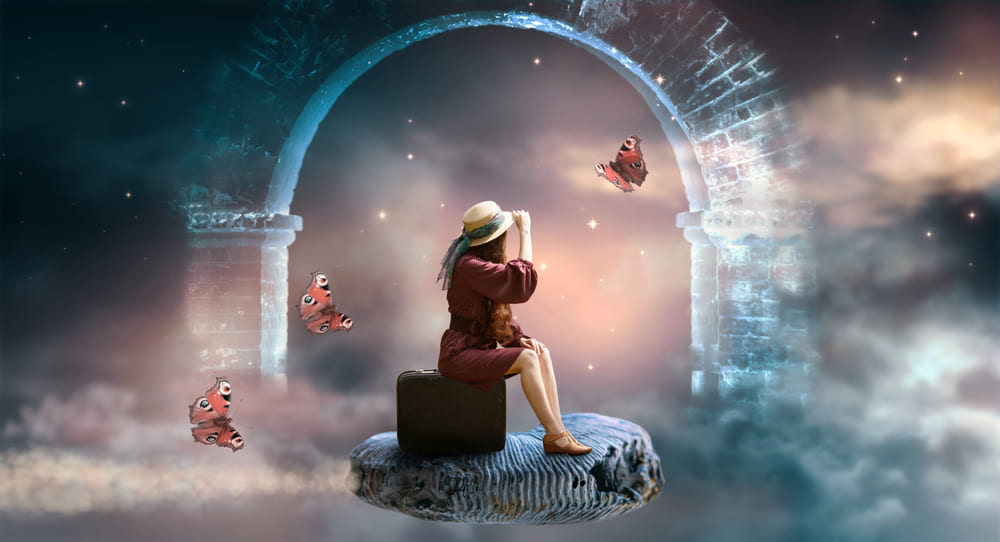
You realize something has left your system that never truly belonged to you. The pressure you were carrying wasn’t just emotional tension or physical discomfort – it was the architecture of an old agreement, a psychic or ancestral contract that had remained intact until you were strong enough to dissolve it.
These contracts can be subtle. They can sound like lifelong roles. The fixer. The invisible one. The one who stays. The one who never says no. The one who absorbs the chaos so no one else has to. These roles don’t leave with a conversation. They leave through the body. Through the nervous system. Through long moments of staying with what aches without flinching or collapsing.
When it finally clears, it doesn’t feel like victory. It feels like space. Not emptiness, but possibility. A quiet that holds no pressure. A kind of stillness that isn’t waiting for the next wave.
You don’t have to work to make it last. You don’t have to analyze it or guard it. You just begin to notice what’s different.
The dreams may stop. Or they shift tone completely. No longer cyclical or intense, but calm, even neutral. The themes dissolve. The messages end. The characters walk away.
Your inner dialogue gets quieter. The judgments lose their sharpness. The tightness in your face or chest eases without effort. The body exhales – not because you made it, but because something finally let go.
And while you may still feel like yourself, something in the field around you is unmistakably altered. A configuration of energy has completed. And that change is irreversible.
You may notice it when you return to an old environment and feel nothing. When someone says something that used to make your body tighten – and you don’t react. When an old trigger passes right by you like a breeze instead of entering like a blade.
This is not spiritual bypassing. This is earned clarity. This is the quiet after deep ceremony. You stayed with what others spent lifetimes avoiding. You became the place where the pattern stopped and didn’t restart.
You’ll still be human. You’ll still feel things. But the specific density that once lived inside you – that old grief, judgment, guilt, confusion, or need to explain – won’t be home anymore.
It left. And you didn’t force it out. You held the door open long enough, and it walked away. This is what completion feels like. And you are allowed to trust it.
Let that be your new normal. Not hypervigilance. Not waiting for it to return. But learning how to live in the space that has finally been cleared.
You’ve earned this stillness. Let it deepen. Let it hold. Let it teach you who you are now.
What Happens Now – A New Count Begins After Releasing Ancestral Patterns
After a clearing like this, don’t count days based on pressure-free experiences.
Start counting days where you:
-
- Witness emotion without merging into it
- Move energy without fearing it
- Hold the body with clarity, even when it’s uncomfortable
- Say yes to your path, even when others misunderstand it
- Refuse to collapse back into systems that never had space for your soul
This is no longer about healing in the traditional sense.
This is about spiritual sovereignty under load.
You Don’t Need Their Table Anymore and How To maintain And Understand Spiritual Autonomy In Modern Life
Some family systems never offer you a seat unless you abandon yourself first. They’ll only make space if you shrink your truth, stay quiet around their fragility, or carry shame that was never yours to begin with.
And sometimes, there was never a seat at all. Not even a gesture of welcome. Just the cold outline of a structure that said, “You don’t belong unless you disappear.”
If you’re here, reading this, chances are you left that table a long time ago – or you were never truly allowed near it in the first place.
But that absence wasn’t rejection. It wasn’t exile. It was preparation. A clearing of space so that you could learn to build something real. A life. A seat. A table that actually holds the truth of who you are.
-
- Every time you sat through discomfort without numbing – you built it.
- Every time you told the truth even when your voice shook – you shaped it.
- Every time you felt the ancestral pressure rising and stayed present anyway – you laid another piece of foundation.
You weren’t just walking away from dysfunction. You were walking into sovereignty.
And now, the structure you’re building is not just for you. It’s for the version of you that was never welcomed. For the part of you that never had a place to land. For the future you’re creating that doesn’t require anyone to betray themselves just to feel safe.
You don’t need their table anymore because it was never built to hold your expansion. It was designed to keep the structure intact – not to honor the soul evolving inside you.
Let them think what they need to think. Let them misunderstand, if they must. What matters now is what you know. You are not abandoning anyone. You are refusing to abandon yourself.
You’re not stepping away from connection. You’re stepping into a kind of connection that doesn’t rely on guilt, performance, or spiritual smallness.
And that makes you dangerous – to systems built on silence. But it also makes you sacred.
Because you are the one becoming the field. You are the one who said no when everyone else said yes to their own suppression. You are the one who stayed through the burn and didn’t break. You are the one who cleared what others refused to see.
You are not trying to reclaim a seat at their table. You are building your own.
And it’s already happening – with every breath, every boundary, every moment you refuse to collapse into the familiar for comfort.
You’re not seeking sovereignty anymore. You are the living proof that it exists.
And what broke through you today or recently – or at some point in the past – whether it came through dreams, impressions, whispers, discomfort, grief, or pressure – was not a brain fart or breakdown.
It was confirmation that you’ve crossed the threshold from healing into expansion. And this is not about achieving isolation – it’s about achieving a final Sovereignty of Being.
Let this be your place now. Your seat. Your presence. Your altar.
Let the table rise from within you. Let it give you strength and voice.
This is YOUR time now. Enjoy it!

FAQ: Spiritual Sovereignty & Ancestral Compression
- What does it mean to reclaim my spiritual sovereignty?
Upon our birth, we begin yielding tiny aspects of our power and purity to others. And we relinquish, not only to people, but also to paradigms, constructs, and ideas. The more we yield over time, the less we can fully command our kingdoms from the position of our most pristine Self.
Sovereignty is the inherent right and power to command ourselves and govern our lives without external control. Having total authority, where decisions arise from within, rather than being dictated by fear, manipulation, or cultural programming – is our right. With sovereignty comes clarity, empowerment, boundaries, and an effulgent fathoming of our personal truth. When we disrupt consensus-reality through truly empowered, sovereign living, life is fucking grande.
Spiritual sovereignty is the soul’s full reclaiming of its soul-infused divinity, free from restraint, contrivance, dogma, savior bullshit, and spiritual and emotional co-dependencies. It’s when our connection to the pulse of reality – the electric current that cannot be controlled – arises from the altar of our pure, outrageous, wild soul – the One who has experienced all of it. There are no beliefs, gurus, systems, or external lights amid true sovereignty. And for certain, there ain’t no fucking mermaids. Spiritually sovereign, you OUTSOURCE NOTHING. There is YOU, SACRED, EMBODIED, FIERCE, TENDER, SELF-OWNED, AND FREE FOR ALL TIME.
This doesn’t mean you feel all cozy by a fire in a mountain cabin, or snuggled at the feet of a ball of cosmic goo – it means you feel ALL OF IT. EVERY FUCKING BIT OF IT. IN EVERY FUCKING MOMENT. It’s RAW and beautiful – and you embrace and blissfully embody the pain, the joy, the projection, the illusion, and the reality – ALL OF IT.
Start releasing every dependency you have – and enjoy the process. Every minute of it.
You are far more powerful and connected than you realize.
- How can I tell if I’m carrying ancestral compression?
You are most certainly carrying around ancestral compression. Otherwise, what would have landed you in this article? Your soul hungers release.
The moment you were born, ideas, constructs, rules, and ideologies began compressing themselves into the fabric of your imagined Self. And someone, likely your family, convinced you to continue doing it. They used emotional rewards and manipulation. And you fell in love with it and you got addicted to it.
All that’s packed within you is like an espresso portafilter – tightly holding the grounds of everything you’ve absorbed since birth. And it wasn’t gently filled. It was pressed in hard by a relentless, unstoppable, addicted Super-Barista: creating a tangled mesh of ancestral patterns, cultural dogma, family delusions, and utter bullshit. Over time, that pressure – all that tamping, all that ideology, all that obsession to convert you – compacted a dense, bitter shot of inherited insanity straight into your soul.
Your job is to stop drinking the fucking coffee.
Your mission is to stop ingesting, stop believing , and start releasing – through tears, anger, or extreme adventure. Your job is to inspire yourself to release and fully decompress. If you stop packing beliefs, ideology, guilt, shame, and other bullshit atop your soul, and recognize all those compressed coffee grounds as contrivance – LIES – you’ll eventually begin to release all the insanity within you – the ancestral compression within you.
It won’t be pretty. It’s not a new-age happy bliss-trip. You’ve basically ingested toxins, likely for centuries – along with the toxic machine that creates them. Ripping that out takes some time, some pain, and some focus.
Schedule an intuitive session with me – and we’ll get into every nook and cranny of your ancestral compression so you can finally be free.
- What is ancestral compression, exactly?
Ancestral compression is a collection of false constructs and ideas. It is all that you’ve ingested from others. This includes ideas, beliefs, religions, family culture, ancestral stories, social constructs, and lies. These things weren’t just presented to you, they were passionately impressed upon you – and compressed into you – with your permission, your unknowing yielding, your absolute, clueless surrender.
You basically birthed into a complex system of lies.
- Why do I feel guilty for choosing a different path than my family?
Because the ancestral compression runs deep – and you’ve likely done very little to confront it and release it. Your core belief is that guilt is deserved, not contrived. You likely believe that you deserve it. And you believe this because someone convinced you that you’re pathetic in some way.
Whoever did that doesn’t deserve to be in your life as a fixture. It’s time to transcend those types of relationships and get into a severely intense and emboldened relationship with your Self and The Divine.
- Can spiritual sovereignty and ancestral healing coexist with religion?
Religion is a contrived construct that most often prevents liberation. That said, if your religion has caveats and welcomes you with open arms – as whomever you are and whatever you become – then your spiritual sovereignty need not be hindered amid a religious fascination.
Your job is to always seek your own sovereignty – always drench yourself in divine truths – rather than religious contrivances. Meanwhile, if you subject yourself to the machinations of judgement, guilt, and shame often found within a contrived construct like religion, you’ve trivialized your intentions and jeopardized your evolution.
Be without fear – and you’ll be without a dependency on construct.
Enjoy your religion, but don’t depend on it – don’t believe it will give you anything of lasting value that you cannot give yourself through commitment, save a story and community built for complaints, limits, contrivance, and oppression.
Learn More About An Intuitive Session With Me
- How do I start healing ancestral wounds if I don’t know my family history?
Your family history means nothing. It’s a construct that will keep you guessing about it and inquiring about it ad nauseum. It’ll keep you trapped.
You don’t heal ancestral wounds – you release the constructs that enjoyed them – and you release the emotions they provoked and inspired.
You start crying, raging, and releasing. You start changing the rules of the game. You challenge relationships amid their programmed and contrived constructs.
You own freedom until it blows through you and recreates you.
Schedule an intuitive session to begin this life-changing journey.
- Why does setting boundaries make me feel selfish or wrong?
Setting boundaries and changing the parameters around what you allow or permit in your sphere triggers your guilt, shame, and self-hatred because you believe codependent relationships to be truly illuminating and enjoyable, when they’re not.
When you’re immersed in relationships that undermine you – and you feel guilt and shame within them, you are likely still invested in building these types of relationships.
At one point, you’ll stop enabling these types of relationships. You’ll set some clear boundaries and ready yourself to tell people to fuck off if they trespass.
Allow this feeling of being wrong or selfish – because on some level you are – and that’s okay. Allow these feelings until they burst out of you – and dissolve. Feel guilt, shame, and self-hatred until you cry your fucking eyebrows off.
Eventually, if you commit to releasing all that is oppressed within you, you’ll feel a sense of freedom – and those boundaries will become beautifully ornate walls of rawness, confidence, and wild bliss.
- How long does it take to fully reclaim spiritual sovereignty?
Every person is unique. Every person has built and believed arrays of delusional constructs – all unique to them. The time for reclaiming real spiritual sovereignty is based on how much someone is committed to crying, raging, and releasing all that has oppressed and limited them through this life and prior lives.
Your journey can begin right now. It depends on how long you want to suffer for no reason – except to enjoy the false identity that loves suffering.
For many people, the victim, suffering fool is all they know.
Dive deeply into yourself and let’s get you on the road to freedom.
- Can I do this work on my own, or do I need guidance?
Some people are built for this type of work – they’ve been doing it on some level since they were born. But these people are rare. I began this work as a very sensitive and intuitive child – and over time was able to release all contrivance and delusion. Having practiced various forms of freedom for 40 years, I spend most of my time drenched in it. I’ve also had spiritual teachers and mentors who helped me along the way – which expedited my journey immensely.
When you’re ready, you can do the same.
I’m looking forward to working with you.
Explore intuitive readings with Paul




